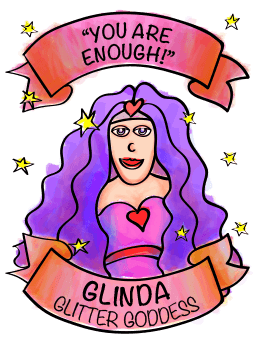In my early days as a psychotherapist whenever I would begin with a new client I would often get the question, “How long is this going to take?”
Meaning, how much time will it take before I am healed and this problem I am bringing to you is permanently solved.
And I would often reply in a lighthearted joking manner, “ You really don’t want to know.”
This yearning to be fixed, to be done and finished… hopefully forever… with whatever suffering is plaguing us is such an understandably common human desire. But thinking that it’s possible to completely banish our painful feelings or challenging psychological complexes actually gets in the way of any true experience of healing and wholeness.
I don’t do as much psychotherapy anymore, but I can’t tell you how many times I have heard some version of that same wish from folks who come to paint with me in my studio.
One of my students will begin to feel something intense and taboo, like anger or rage and paint the fury out of them in an explosion of movement and shapes and color and then look at me hopefully with that same question on their lips.
They feel so triumphant … and rightly so… for the courage they exhibited in expressing themselves in such a powerful way. But will then say something to me like, “I’m SO glad that I got that energy out of me. I don’t like it and I’m hoping that this means it won’t ever come back.“
And I always find myself in the role of deeply acknowledging them for their bravery but reminding them again ( because this is usually not the first time we have had this conversation) that this is not how it works.
As much as we might want it to be different , healing is not a process of getting rid of anything. Because all of these energies or feelings or emotions… no matter how uncomfortable they may be… are a part of us. And healing means developing a relationship of acceptance and even love with these aspects of our being.
You can’t ban forever your anger or your grief or your past history of trauma. You can’t expel your deep and ancient wounds around rejection or unworthiness or shame. You can’t outlaw your feelings of hatred or jealousy or fear. You can’t simply walk away from the discomfort that almost always arises when you take the risk to be visible or truthful or brave in some new and expanded way.
Healing doesn’t mean that you get to a place where you never feel anything uncomfortable or messy or painful ever again. It’s just not how it works here on this gorgeous blue planet in these extraordinary human bodies and psyches.
In recent years there has been much incredible work done around how we are affected by trauma and what that does to our nervous systems. And there is the holy grail in many people’s minds around achieving a regulated nervous system. But nervous system regulation does not mean that you stop feeling things that are intense or upsetting or stressful.
Having a regulated nervous system or being in a state of wholeness means that we are willing to meet whatever intensity life throws our way from an attitude of compassion and curiosity. If we think that not ever being distressed or anxious or cranky or sad or ragey or upset is even possible and attainable we will constantly be feeling disappointed and like we are failing… again and again and again… when that doesn’t happen.
And not ever find our way to what is possible in terms of healing and true regulation.
Rather that seeing healing and wholeness as an end goal that is fixed and permanent it’s so much more useful to think of this as an ongoing and never-ending journey of welcoming all of who we are … no matter how painful or difficult or terrifying or uncomfortable… back home into the warmth and safety of our own expanded hearts.
Loving ourselves means learning to be kind and gentle… even respectful… to these challenging places and experiences inside of us that have been in exile for far too long. It means allowing all of our feelings to be felt whenever they arise. To communicate to them that they are a valued part of our inner human family. And to recognize that we wouldn’t be authentically who we are without them.



0 Comments